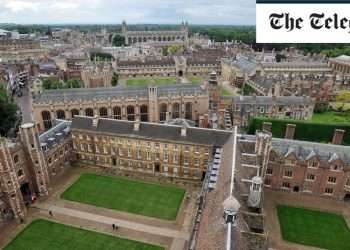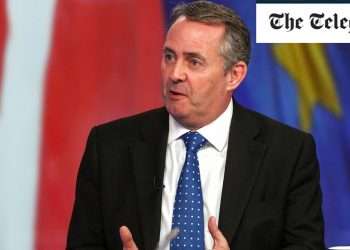
SIR – The proposed increase in the duty on diesel is a cynical tax-raising exercise that would have no material effect on consumption. The vehicle owner has no choice on what fuel to put in his tank.
If the Government is to discourage the use of diesel, it needs to put an additional tax on the purchase price of the vehicle – not on the fuel it uses.
Graham M E Barber
Sudbury, Suffolk
Scientific powerhouse
SIR – Science drives our prosperity, health, innovation and economic growth. It should be front and centre in the EU debate. As British science Nobel Laureates, we are concerned that those commenting on science for Brexit lack experience in scientific leadership, and are putting the superb UK research endeavour in jeopardy.
Inside the EU, Britain helps steer the biggest scientific powerhouse in the world. The EU contains a critical mass of expertise, with more than one in five of the world’s researchers moving freely within its boundaries. It helps provide scientific agility, has some of the finest minds and facilities in the world, and invests heavily in research, people and infrastructures.
EU decisions about scientific policy, funding and regulatory frameworks affect science the world over. On the inside, Britain has access to people and funding, and wields global scientific influence far greater than we have alone.
The prospect of losing EU research funding is a key risk to UK science. Brexit assertions that the Treasury will make up this shortfall are naive and complacent, given that successive governments have allowed Britain to languish well below the OECD and EU averages in its research investment as a proportion of GDP.
Claims that the UK could still access funding from outside the EU are also flawed, since such access will almost certainly be conditional on embracing the very principles Brexit rejects, especially freedom of movement. Science thrives on permeability of ideas and people, and flourishes in environments that pool intelligence, minimise barriers, and are open to free exchange and collaboration.
The EU provides such an environment and scientists value it highly. That is why a recent survey in Nature showed that 83 per cent of UK scientists want Britain to stay in the EU. We may be an island, but we cannot be an island in science. Being part of the EU is good for British science and that is good for Britain.
Dr Sydney Brenner
Laureate, Physiology or Medicine 2002
Sir Martin Evans
Laureate, Physiology or Medicine 2007
Sir Andre Geim
Laureate, Physics 2010
Sir John Gurdon
Laureate, Physiology or Medicine 2012
Professor Peter Higgs
Laureate, Physics 2013
Sir Tim Hunt
Laureate, Physiology or Medicine 2001
Dr Tomas Lindahl
Laureate, Chemistry 2015
Sir Kostya Novoselov
Laureate, Physics 2010
Sir Paul Nurse
Laureate, Physiology or Medicine 2001
Professor John O’Keefe
Laureate, Physiology or Medicine 2014
Sir Richard Roberts
Laureate, Physiology or Medicine 1993
Sir John Sulston
Laureate, Physiology or Medicine 2002
Sir John Walker
Laureate, Chemistry 1997
Assisted suicide lobby
SIR – Sir Graeme Catto is a former chairman of the General Medical Council.
He is also chairman of the lobby group Dignity in Dying (formerly the Voluntary Euthanasia Society). The poll on assisted suicide to which he refers – which, he said, found that “just 7 per cent of people agree with the BMA’s current stance” – was sponsored by this group and couched in terms which were one-sided.
It is not true that doctors are “dictating whether or not the law changes”. The British Medical Association’s opposition to legalising assisted suicide may be inconvenient for the lobbyists, but Parliament is at liberty to disregard it if it so wishes. There is nothing unreasonable about the BMA’s policy. It is a policy which most doctors strongly support.
Baroness Hollins
Former President of the Royal College of Psychiatrists, and of the BMA
London SW1
Service charge
SIR – There are about 80 charities in this country dedicated to the welfare of ex-servicemen of past wars.
As a former serviceman in the Second World War, I have been contacted regularly over the years by several of these charities – invariably asking me for money.
Gordon Hemmings
Birkenhead, Wirral
Driven to distraction
SIR – Hands-free telephone conversations in cars are now said to be dangerous.
What about chatty passengers?
Michael Nicol
St Albans, Hertfordshire









